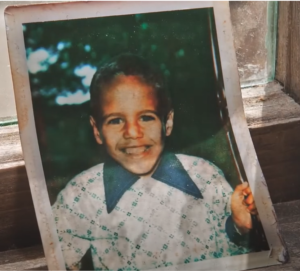Successful business executive and author Steve Pemberton is a living and breathing example of breaking the cycle.
He had to navigate a foster care system from the age of 3 until he was 16 years old, when a teacher took him in to finish high school and get him out of an abusive situation.
Steve was the third generation to be orphaned and the third generation that had gone through a family separation. But a determination to reach his potential and ability to tell himself a different story about his future helped Steve pursue a college degree and a successful career – not to mention a loving family.
Before you hear from Steve in person at Speaking of Women, scheduled for 11 a.m. on Tues., Sept. 10 at The Waterview in Monroe, learn more about his journey by reading our CFJ interview below.


Photos courtesy of APB Speakers.
“If you ask me to climb a mountain, the first thing I’m going to do is visualize myself at the top of it, having already completed it, having already done it.”
STEVE PEMBERTON,
On how he achieves his goals
CFJ:
A lot of what we talk about in our messaging is breaking the cycle…you have to get to people when they’re young to kind of help them tell themselves a new story about their experiences.
Steve:
A pivot. A pivot, and the one thing that I wish someone had told me early on, although I came to discover it, was of the enormous power that I had, and that power came as a result of the skills that I developed, having to navigate those sets of circumstances.
So, the ability to be solution-focused, to think quickly, and to see possibilities when others see circumstances, are skills that we all need and can use.
That they come from a particularly challenging set of circumstances is sometimes the miss.
CFJ:
To be able to think quickly is a skill you can develop over time, but sometimes when you’re in a stressful circumstance, it’s hard to focus on thinking quickly and pivoting.
How did you train yourself to do that?
Steve:
Because I always had the vision of the outcome in mind first.
So, I knew I was going to have family one day, as a young boy. That was my vision.
I knew I was going to find my biological family one day. I knew that I was going to go to college one day. I knew that I was going to be a wonderful husband and father. I had already decided those things, and my interactions with you were largely through the lens of whether or not you were going to help me achieve them.
It wasn’t that you needed to convince me that they were possible, because I had already decided that. It was more about, how will you help me realize those things? The miss sometimes is to not think about the vision being realized first. I do that on a daily basis.
It doesn’t matter how seemingly small the situation is or how large it can be. I’m always starting with the outcome in mind. It’s akin to climbing a mountain.If you ask me to climb a mountain, the first thing I’m going to do is visualize myself at the top of it, having already completed it, having already done it.
That’s not how many of us approach it, though. Most of us approach it from the base of the mountain, looking upwards. It’s distant. It’s far away.
There’s boulders on the path up the mountain and places where there seems to be no path and storm clouds. It can seem ominous, but when you visualize having climbed it from the top and you’re looking down, now everything seems completely different. Where there at first appears to be no path, you see a path.
You can see the clearing through the clouds.
You can see a lot of things when you have that visualization. That’s true for any situation or circumstance.







